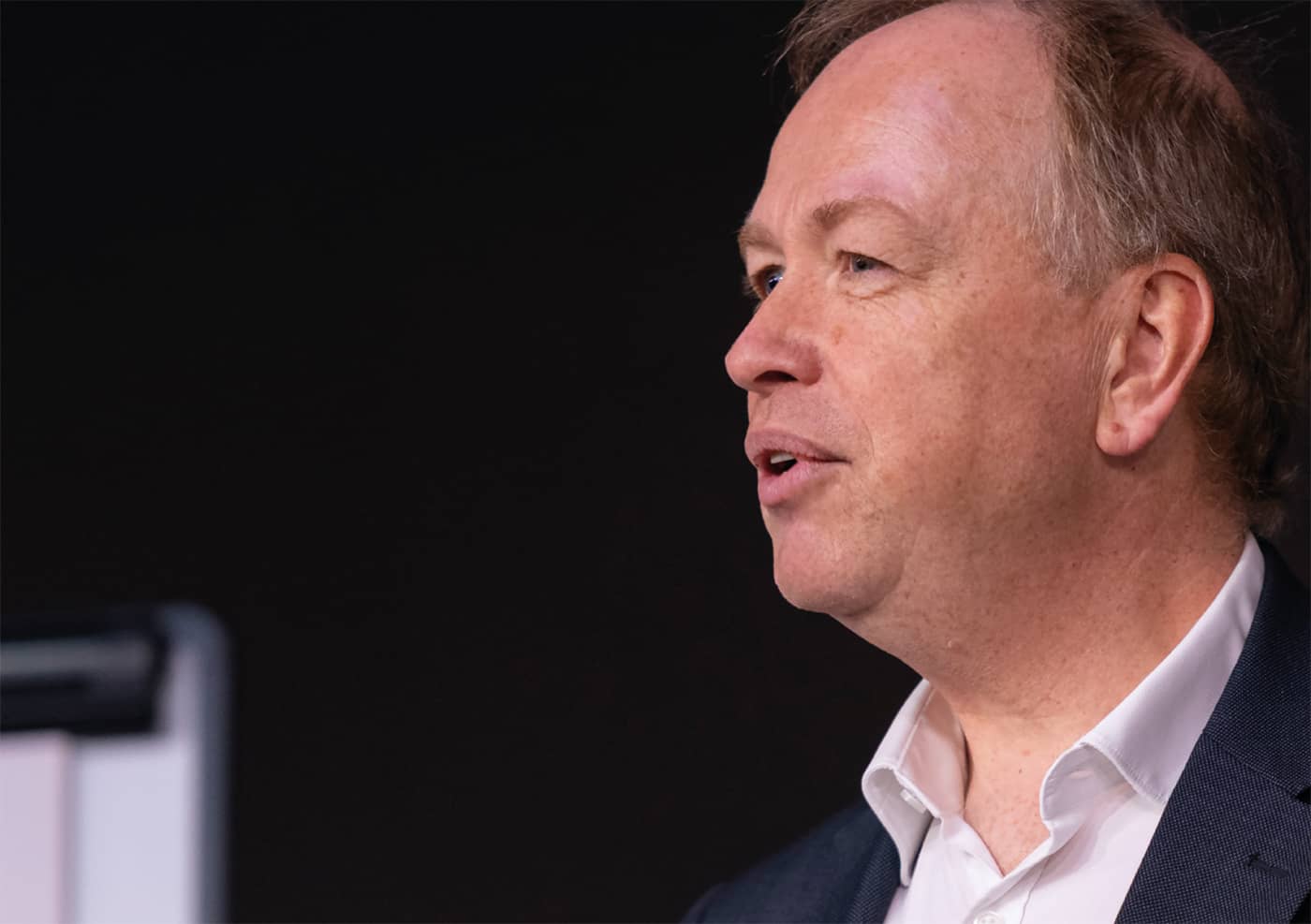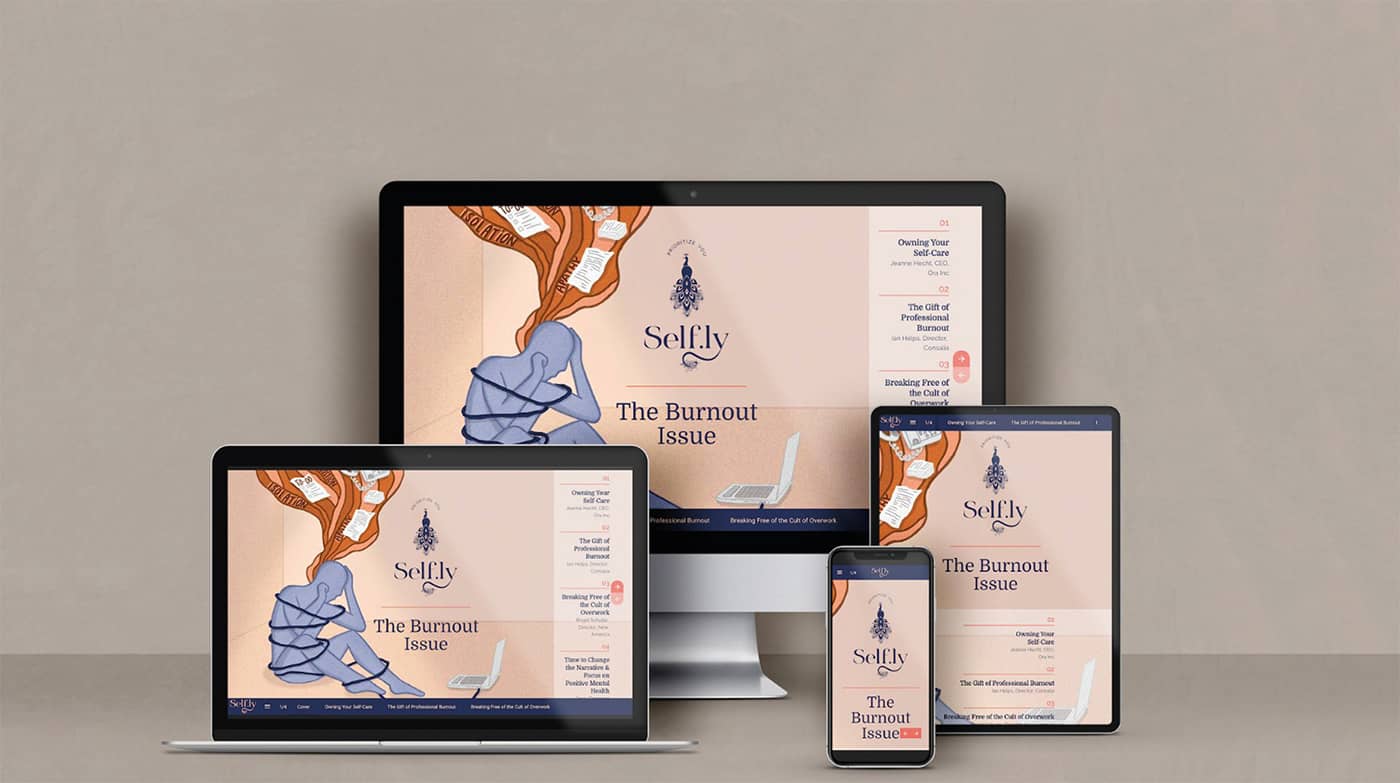The gift of professional burnout
13th December 2019 | Deirdre Coleman (CEO Self.ly)
Ian Helps discusses how burnout forced him to reassess his life and priorities his health.

Positivity transforms us for the better. By opening our hearts and minds, positive emotions allow us to discover and build new skills, new ties, new knowledge and new ways of being.
– Barbara Fredrickson, Positivity
Half a million people in the UK suffer from work-related stress, and psychological breakdown can creep up without warning. Ian Helps, director of sales consultancy Consalia and a board member of the Association of Professional Sales, traced the seeds of his burnout to chronic stress within his sales role.
“I have spent the last 30 years in sales with blue-chip companies. About 15 years ago, I was made redundant and I had a mental breakdown at the same time. Going through it, you feel horrific – like your world has effectively ended. In hindsight, it’s probably the best thing that’s happened to me, as it forced me to explore what I wanted to achieve in my professional career and personally.
“The second major shift was a few years ago and a doctor’s visit that revealed that my blood pressure was too high. I was told that, unless I dealt with it, I was going to be on medication for the rest of my life. That hardened my resolve to start making my health my number one priority.”
The road to self-compassion
Burnout isn’t something that goes away on its own: the recovery is just as slow and painful as what caused the burnout in the first place. For Helps, a period of introspection and reflection was vital to identify the underlying causes.
“It’s a complex problem but one realization I hit upon was that I had perfectionistic traits and I was handed a problem that didn’t have a solution, and I didn’t want to admit that. The road to recovery started with me being self-compassionate; working through things like ‘I matter; it’s OK if I go through episodes like this; that’s all they are’ and ‘I deserve to be healthy; I’m going to make time for my health and it’s going to come first, not second’.”
Helps had also let his self-care go which compounded the stress he was feeling. “Unwittingly, work had taken over. Back in 1990, I could run ten miles at the drop of a hat and frequently did so. I was around 85 kilos and worried that I was too heavy. Then business life got really intense – a move to Aberdeen, with very long hours. I got a pan-European and then a global job, with all the travel that entails; worked more; spent what spare time I had with family and friends, and exercise and nutrition got squeezed out.
“Why? I have no idea. When your health is fine and everything is going well in life, you take it for granted. In retrospect, my health always came second to an incredibly pressured professional life. So for me, recovery started with a deep professional transformation towards a different relationship with my health and it takes time to alter those behaviours – like going to the pub for large meals when you’re stressed out. There’s a whole host of things that are connected. I started on the mental journey, then the health one, dropping 15 kilos through diet.”.
Happy salespeople are better performers
Shawn Achor, author of The Happiness Advantage, is a leading expert on human potential and founder of Good Think Inc, a consulting firm that uses research to enhance individual achievement and cultivate a more productive workplace. He emphasizes that when you’re happy you achieve more: your intelligence rises; your creativity rises; your energy levels rise and every single business outcome improves. He sums this up as the “Happiness Advantage.”
Achor’s research shows that your brain at positive is 31% more productive that your brain at negative, neutral or stressed. You’re 37% better at sales. Happiness also improves business profitability by 147%.1
Studies show that most companies follow a formula for success, which is this: if I work harder, I’ll be more successful. And if I’m more successful, then I’ll be happier. Research shows that our brains actually work in the reverse order. Ian Helps is adamant that high-performing salespeople are invariably positive.
“Positive emotions like joy, happiness or inspiration allow us to build the long-term resources that enable us to thrive. There’s a wonderful woman – Barbara Fredrickson at Positive Emotions Lab in North Carolina, who looked at this. When we’re in a positive state, we interact very differently with one another than when we’re in stress mode. It’s when we are in this positive, relaxed and open state that we can best co-create extraordinary solutions with customers. I’d say it’s the difference between a product sell and being the best solution sales professional you can be.”

Consalia runs a Masters degree programme on Leading Sales Transformation. Among recent participants are a number of successful sales managers who were able to point to regional sales leaders who stood out performance-wise because of their positivity.
“They are going into meetings looking at the positive side of ‘How can I support you?’ instead of the negative: ‘You are a problem waiting to be fixed.’ Unsurprisingly, these people are very successful. Their organizations have a different tone to them and different conversations can happen. It’s a ridiculously understudied part of sales life and its incumbent on all of us to talk more about,” says Helps.
It’s also vital for sales managers to be human first. “They can support high performance and employee health and wellness by showing they care, asking questions on the humanity axis. I would argue, if you go back to Simon Sinek and his books such as – Start with Why and his Golden Circle, the best sales leaders are looking at the ‘why’ of their particular part of the organization and its existence. They are exploring every avenue they can to make the ‘what’ and the ‘how’ line up with that, of which performance and health are a part.
“Pressure can be positive under the right circumstances, giving their people permission to talk about the stress they are feeling, showing they care and, if necessary, putting in place outside interventions before burnout happens. I know companies that have put those supports in place because that honest conversation has happened.”
Self-awareness and development support can also help build resilience to withstand failure within sales teams. “You have to decide are you going to learn from failure or keep taking it personally? Say you have a sales career of 30 years, are you going to have a reflective sales development journey of 30 years or is it going to be 30 lots of one year, where you keep repeating the same mistakes? That’s a choice. It comes down to self-reflection and awareness; most of the time we get the most corporate attention when things don’t go to plan – but that’s also when the learning is richest.
“In the corporate world, it’s hard to embrace failure. As a company, we have learned to embrace it,” he concludes.
Keep lines of communication open
Salespeople have personalities that are high on emotion; they tend to be outgoing and can be highly intuitive and sensitive with high levels of empathy. These traits are positive in a sales environment, allowing the salesperson to build rapport with customers and better understand their needs. The downside is that the things that can help to make a salesperson successful can also hold them back and make them vulnerable to workplace stress and burnout.
Frequent travel, disrupted sleep from time-zone hopping, excessive alcohol and poor eating habits compounded by the isolation of being away from familial and collegial support can exacerbate workplace stress for those in field sales. Added to this, high sales targets, having to have positive interactions with clients and regular reporting can all take a toll on mental health and wellness. How can sales managers best ensure they are supporting high performance and employee health and wellness?
“You’ve got to see wellbeing as vital to dealing with pressure. You need an infrastructure, a support system of colleagues, friends and family who can talk to you. Then, for dealing with those emotional highs and lows of sales, you have to find a coping mechanism – some people use alcohol and food; eventually that causes issues. I have yoga, cycling and my support network.
“It’s never simple; there’s no one-size-fits-all. Anyone who says there’s a simple solution to workplace stress and burnout has not suffered from it directly themselves. Managers play an enormous role by simply facilitating an open discussion on workplace stressors with practical support where needed.
“High-stress roles call for high support. Encourage a culture of open communication about mental health and wellbeing so employees know that it’s OK to talk about stress at work, and assure them that it’s not a sign of weakness to ask for help. Everyone has a different stress tolerance level,” says Helps.
FOR MORE INFORMATION ON CONSALIA
FOR MORE INFORMATION ON SELF.LY
1 Beth Kuhel, Huffington Post, February 2015,
http://goodthinkinc.com/project/huffington-post-to-increase-productivity-work-less-get-happy/.


